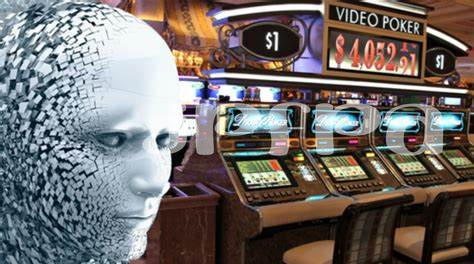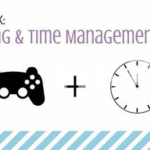Explore How Artificial Intelligence Is Reshaping Gambling, from Ai Dealers to Human Interaction, and the Impact on the Future of the Industry.
Ai Dealers Vs Human Dealers: the Future of Gambling
- 🤖 Ai Dealers: Revolutionising Traditional Gambling Experience
- 🧑💼 Human Dealers: the Heart and Soul of Casinos
- 💡 Comparing Skill Levels: Ai Vs Human Expertise
- 🎲 Player Preferences: the Shift Towards Digital Interfaces
- 🕹️ the Impact of Ai on Casino Employment Trends
- 🔮 Future Bets: the Evolving Landscape of Gambling Tech
🤖 Ai Dealers: Revolutionising Traditional Gambling Experience
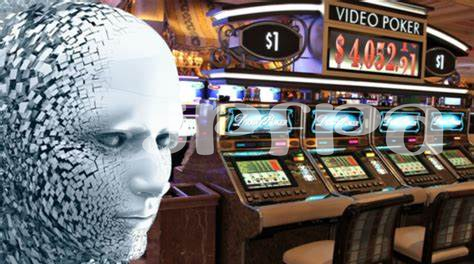
In the twinkling world of casinos and gambling, a groundbreaking shift is on the horizon, ushering in a new era where chips and cards are dealt not by hands with pulses but by circuits and codes. The introduction of AI dealers is revolutionising the traditional gambling experience, bringing a blend of efficiency and a futuristic touch to the felt tables. Imagine sitting at your favourite casino, the atmosphere is electric, yet something is remarkably different. The dealer, with an unerring accuracy and devoid of any tell-tale human quirks, navigates through games at a pace designed to keep you utterly engrossed. This isn’t just about robotics; it’s about creating a seamless interaction between human intuition and artificial intelligence.
Behind this innovation lies a sophisticated technology stack, utilizing advanced algorithms and machine learning to not just mimic but enhance the duties of a traditional dealer. These AI entities are equipped to handle a variety of games, from blackjack to poker, adjusting their operation based on player behaviour and preferences. The change is subtle yet impactful, creating a space where the excitement of gambling melds with the precision of technology. Yet, amidst this digital fanfare, questions about the essence of gambling remain. Does the absence of a human touch, the absence of eye contact or the casual chit-chat, detract from the experience, or does it simply add another layer to the rich tapestry of casino life?
| Feature | Human Dealer | AI Dealer |
|---|---|---|
| Interactivity | High | Medium |
| Efficiency | Variable | High |
| Error Rate | Occassionally | Low |
| Game Variety | Limited by Experiance | Extensive |
As the gambling industry leans more into this technological crossroads, the reaction of the patrons remains mixed. Some veteran players yearn for the human element, the strategic banter, and the psychological warfare of bluffs and double bluffs. Yet, a newer, tech-savvy generation views AI dealers as an exhilarating progression, bringing a vibe that feels right at home in our digital era. This isn’t merely a transition; it’s a reimagination of what the essence of gambling can become when tradition meets innovation squarely on the casino floor.
🧑💼 Human Dealers: the Heart and Soul of Casinos
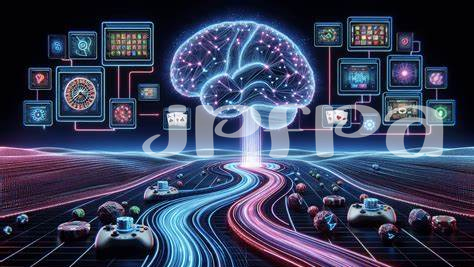
In the vibrant world of casinos, human dealers stand undisputed as the heart and soul, weaving the very fabric of the gambling experience with their personal touch. They are the maestros orchestrating the flow of the games, their hands deftly shuffling and dealing cards, their eyes keenly following the action, ensuring fairness and integrity. Human dealers bring an irreplaceable human element to gambling, fostering social interactions that AI dealers simply cannot replicate. Their smiles, conversation, and ability to read the room add a layer of comfort and trust that enhances the overall casino experience.
Comparatively, while gambling and artificial intelligence offer efficiency and accuracy, they lack the personal connection that comes with human dealers. The subtleties of human interaction—such as celebrating wins together, empathizing with losses, and simply sharing a laugh—create an environment that feels more alive and engaging. This social aspect of gambling is paramount for many players, who prefer the human touch over the impersonal interaction with machines. The chatter, the jokes shared between hands, and the communal camaraderie found at the tables are aspects of the casino experience that technology has yet to acheive.
Furthermore, human dealers play a crucial role in maintaining the integrity and trustworthiness of games. They are trained professionals skilled in detecting cheating or foul play, ensuring that games are conducted fairly and without bias. This level of vigilance and personal accountability is something that, at least for the foreseeable future, AI cannot fully replicate. Despite advancements in gambling and artificial intelligence, the human dealer’s ability to provide a secure and enjoyable gaming atmosphere remains unparalleled.
As teh industry evolves, it’s clear that both human dealers and AI have their respective places in the future of gambling. While AI might offer speed and efficiency, human dealers hold the unbeatable advantage of personal interaction and trust. The blend of tradition and innovation will continue to shape the gambling landscape, but human dealers will always be at its core, embodying the spirit and excitement of the casino floor.
💡 Comparing Skill Levels: Ai Vs Human Expertise
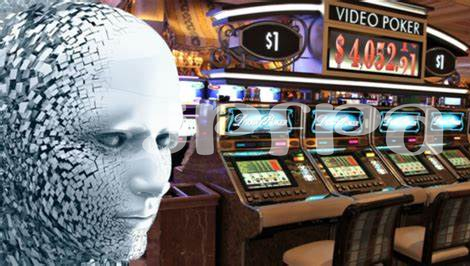
The advent of AI in the gambling sphere has sparked an intriguing debate regarding the skill levels of AI dealers compared to their human counterparts. AI, with its ability to process vast amounts of data and adapt to various gameplay scenarios, presents a new challenge to the traditional casino environment. AI’s proficiency in managing games and making split-second decisions based on algorithms could potentially lead to a higher level of gameplay accuracy than ever before. However, this technological prowess does come with its caveats. There’s a subtle nuance to gambling and artificial intelligence that cannot replicate the personal touch and judgement a human dealer offers, elements which have long been cherished by seasoned players.
On the flip side, human dealers bring a sense of authenticity and a personal touch to the game, fostering a social environment that AI simply cannot emulate. Their expertise isn’t just in the technical aspects of the game but also in reading the room, managing players’ experiences, and even detecting tells or handling complex player interactions. This emotional intelligence, combined with years of experiance in the fast-paced casino environment, allows human dealers to make judgements that extend beyond the probabilistic outcomes of AI algorithms. It’s a skill set that includes not just the ‘hard skills’ of game management but also the ‘soft skills’ of empathy and interaction.
Yet, as technology continues to evolve, the gap between AI and human skill sets in gambling could narrow. AI systems are increasingly adept at understanding human emotions through advancements in natural language processing and emotion recognition technologies, hinting at a future where the line between AI and human dealers becomes increasingly blurred. The introduction of robots and AI in casinos might raises red flags about the ‘soul’ of gambling being lost, yet it also opens up new dimensions in gaming strategy and fairness. The ongoing interplay between human intuition and AI’s computational power is set to redefine the boundaries of gambling, challenging the traditional paradigms of skill, chance, and interaction in the casino world.
🎲 Player Preferences: the Shift Towards Digital Interfaces
In recent years, the gambling landscape has witnessed a significant shift towards digitalization, with players increasingly favoring the convenience and instantaneity offered by artificial intelligence dealers over traditional, human counterparts. This transition is not merely a testament to the advancements in gambling technology but also reflects changing player preferences that lean heavily towards efficiency and the ability to play anytime, anywhere. Despite the digital allure, the essence and unpredictability that human dealers bring to the table continue to hold a special place in the hearts of many enthusiasts. It’s a blend of nostalgia and the human touch that keeps the debate between the two alive.
However, as artificial intelligence becomes more sophisticated, its ability to mimic human interactions and decision-making is seequivably enhancing the player experience. This technological evolution is pushing the boundaries of what’s possible in gambling, offering personalized and interactive sessions that were once the exclusive domain of human dealers. Such advancements are not only reshaping player expectations but also revolutionizing how games are played, creating a rich, immersive gambling experiace that transcends the physical confines of casinos.
Yet, amid this digital shift, concerns about the ‘coldness’ of AI dealers and the loss of the social aspect of gambling remain prevalent. Gamers who find pleasure in the banter and personal interaction at the tables might feel something is missing. Interestingly, the solution might lie in a hybrid model that combines the efficiency of AI with the warmth of human dealers, ensuring that the future of gambling caters to all preferences. As technology and human expertise blend, the dynamic world of gambling continues to evolve, suggesting that player preferences will ultimately guide the balance between digital interfaces and the timeless allure of human interaction in the casino experience.
🕹️ the Impact of Ai on Casino Employment Trends
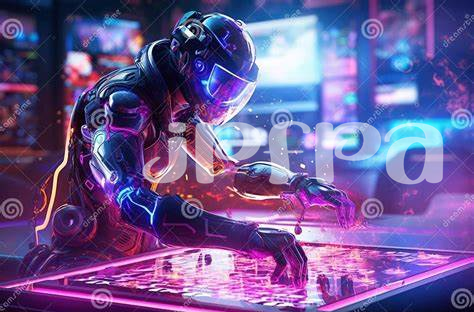
As the dice rolls in the vast and ever-evolving world of gambling, the introduction of artificial intelligence is reshuffling the deck on traditional casino employment models. The trend towards digitalisation, spurred on by AI’s relentless march, has certainly raised more than a few eyebrows. As AI dealers deal cards with robotic precision, a not so quiet murmur among the ranks of human croupiers has begun to surface, pondering on what the future beholds. It’s a reality that’s created a cocktail of anticipation and apprehension – the ingredients of a classic gambling night, yet this time, the stakes are employability and adaptation.
The transition towards AI in casinos isn’t just about technology’s love affair with gambling; it mirrors a broader narrative that’s playing out across industries. But in the thick of slot machines and roulette wheels, its impact is uniquely palpable. No longer are skills like ‘counting and pouring’ or navigating the ‘robot’ of automated dispensing systems relegated to the fringes; they’re now centre stage, necessitating a redefine of what it means to work in the gambling sector. A glance at the current environment reveals a significant shift, with ‘pharm techs’ of the casino floor – skilled human dealers – increasingly alongside or replaced by their digital counterparts, compelling a reshuffle in workforce dynamics and skills requirements.
| Impact Area | Human Dealers | AI Dealers |
|---|---|---|
| Employment Trends | Decrease in traditional roles | Increase in tech-oriented positions |
| Skills Development | Need for re-skilling | Focus on technical competencies |
| Customer Interaction | Highly valued | Limited to non-existent |
| Adaptability | Necessity to learn new tech | Programmed to evolve |
What this table elucidates is the dual-edged sword that gambling establishments face – a push towards innovation and the pull of preserving the human touch that’s long defined the casino experience. As they navigate this terrain, the reality is clear: AI might hold the ace in operational efficiency and error reduction, but it’s the human dealers who’ve always been the heart, adding a personal touch that no machine can replicate. Looking ahead, the future of gambling will likely be a blend of both worlds – a high-tech environment where AI and humans coexist, complementing each other’s strengths. The challenge, therefore, isn’t just about hedging bets on one over the other; it’s in crafting a strategy that integrates the best of both, ensuring that while AI might change the game’s pace, it’s the human spirit that keeps the essence of gambling alive. In this evolving landscape, adaptability becomes crucial, signalling a period of significant transition where the delineation between technology and traditional prowess becomes ever more entwined, paving teh way for a new era in the gambling industry.
🔮 Future Bets: the Evolving Landscape of Gambling Tech
The future of gambling technology is brimming with possibilities, driven by the relentless pace of innovation. Casinos and gaming platforms are increasingly leveraging cutting-edge tech to offer unparalleled gaming experiences. Artificial intelligence (AI) stands at the forefront of this transformation, poised to redefine what it means to gamble. AI-powered systems are not only enhancing game fairness and security but are also creating more immersive, engaging gaming environments. They’re capable of analyzing vast amounts of data to personalize the player experience, ensuring each bet is as thrilling as the last.
Meanwhile, virtual reality (VR) and blockchain technology are set to play pivotal roles in the gambling sphere. VR is expected to transport players to digitally created or real-world casinos, enabling them to experience the exhilaration of real-life gambling from the comfort of their homes. Blockchain, on the other hand, introduces a new level of transparency and security to online gambling. It ensures the integrity of games and the swift, secure processing of transactions. Together, these technologies promise a future where gambling experiences are more secure, immersive, and accessible than ever before.
However, this push towards digital innovation raises significant questions about the role of human dealers and traditional gambling settings. Will the charm and social interaction offered by human dealers become obsolete in the face of AI’s efficiency and omnipresence? It’s a question that the industry grapples with as player preferences evolve. Yet, many argue that the human element—those spontaneous, unpredictable moments that create memories and stories—is something technology can augment but never fully replace.
Looking ahead, the gambling industry’s trajectory is clear: a blend of technology and tradition, where AI and human dealers coexist to cater to the diverse preferences of players. This balance will be crucial in ensuring the industry’s growth, maintaining the magic of casino gambling while embracing the benefits of technology. As for employment trends, the rise of digital gambling platforms could redefine roles within casinos, requiring a shift toward tech-savvy positions. Rather than displacing jobs, technology could diversify employment opportunities in the sector, from game design and cybersecurity to customer experience specialists. The future of gambling tech is not about choosing between AI dealers and human dealers but finding the optimal way to merge technology with the human touch that has been the essence of gambling for centuries.
